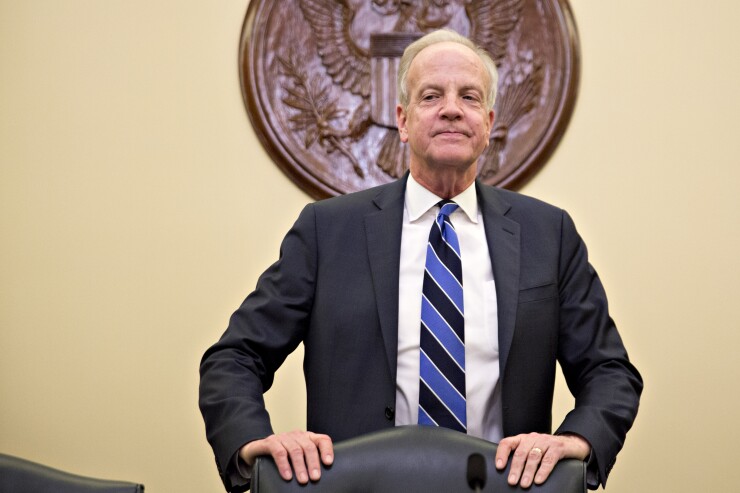Sixty-four consumer groups are speaking out against a Senate measure, expected to be voted on this week, that would overturn the Consumer Financial Protection Bureau's 2013 regulation on discriminatory pricing by auto lenders.
The Senate is expected to vote as early as Tuesday on legislation sponsored by Sen. Jerry Moran, R-Kan., that would use the Congressional Review Act to repeal the CFPB's controversial auto lending rules.
The groups oppose a Senate vote on procedural grounds, claiming that Congress should have reviewed the guidance in 2013 when it was first issued by the CFPB. Using the Congressional Review Act to attack guidance that is five years old runs counter to the law and would set a "dangerous precedent," they said.

"We oppose such a vote, as it would contravene the clear intent of the CRA to allow Congress to review and challenge recently finalized agency actions," the letter stated. "This would set a dangerous precedent that would open the door for Congress to stretch the CRA to challenge a wide variety of settled agency actions that have been in effect for years or decades, particularly 'guidance documents' that are not only crucial to protecting workers, consumers, minorities, the environment, and the economy but also to providing regulatory certainty for businesses and the public."
In December, the Government Accountability Office said the CFPB's guidance should have been subject to congressional review and had to be resent by the agency. That decision effectively
Almost from the moment the CFPB issued the guidance, auto lenders argued that they should not be penalized. The rules target unintentional discrimination by partner dealers against minority customers under a legal theory known as "disparate impact."
Auto lenders and dealers also objected to the CFPB's methodology for determining discrimination. Because consumers are not required to list their race or ethnicity on auto loan applications, the CFPB used a regressive analysis to essentially guess which borrowers were minorities.
The House passed a bill in 2015 that would have eliminated the guidance, but the Senate never took up the issue.
In late 2013, the CFPB and Justice Department in the Obama administration settled the first auto lender discrimination case, against
"Using the CRA, rather than regular legislative order, to attack years-old established guidance would be an extraordinary and egregious abuse of normal process — exactly the kind of rigged action on behalf of narrow corporate insiders that so infuriates Americans of all political stripes," the letter stated.
Two auto-safety related organizations — Consumers for Auto Reliability and Safety and the Center for Auto Safety — were among the 64 groups that signed the letter. They also included the Center for American Progress, the Center for Responsible Lending and the Consumer Federation of America.





